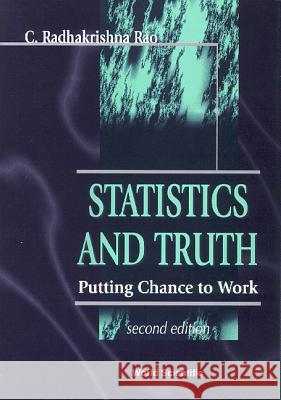Statistics and Truth: Putting Chance to Work (2nd Edition) » książka
Statistics and Truth: Putting Chance to Work (2nd Edition)
ISBN-13: 9789810231118 / Angielski / Twarda / 1997 / 212 str.
This book deals with the philosophical and methodological aspects of information technology and the collection and analysis of data to provide insight into a problem, whether it is scientific research, policy making by government or decision making in our daily lives. The author seeks to dispels the doubts that chance is an expression of our ignorance which makes accurate prediction impossible and illustrates how our thinking has changed with quantification of uncertainty by showing that chance is no longer the obstructor but a way of expressing our knowledge. Indeed, chance can create and help in the investigation of truth. This theory is eloquently demonstrated with numerous examples of applications that statistics is the science, technology and art of extracting information from data and is based on a study of the laws of chance. It shows how statistical ideas played a vital role in scientific and other investigations even before statistics was recognized as a separate discipline, and how statistics is now evolving as a versatile, powerful and inevitable tool in diverse fields of human endeavour such as literature, legal matters, industry, archaeology and medicine. The use of statistics to the layman in improving the quality of life through wise decision-making is emphasized.











